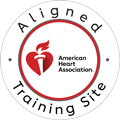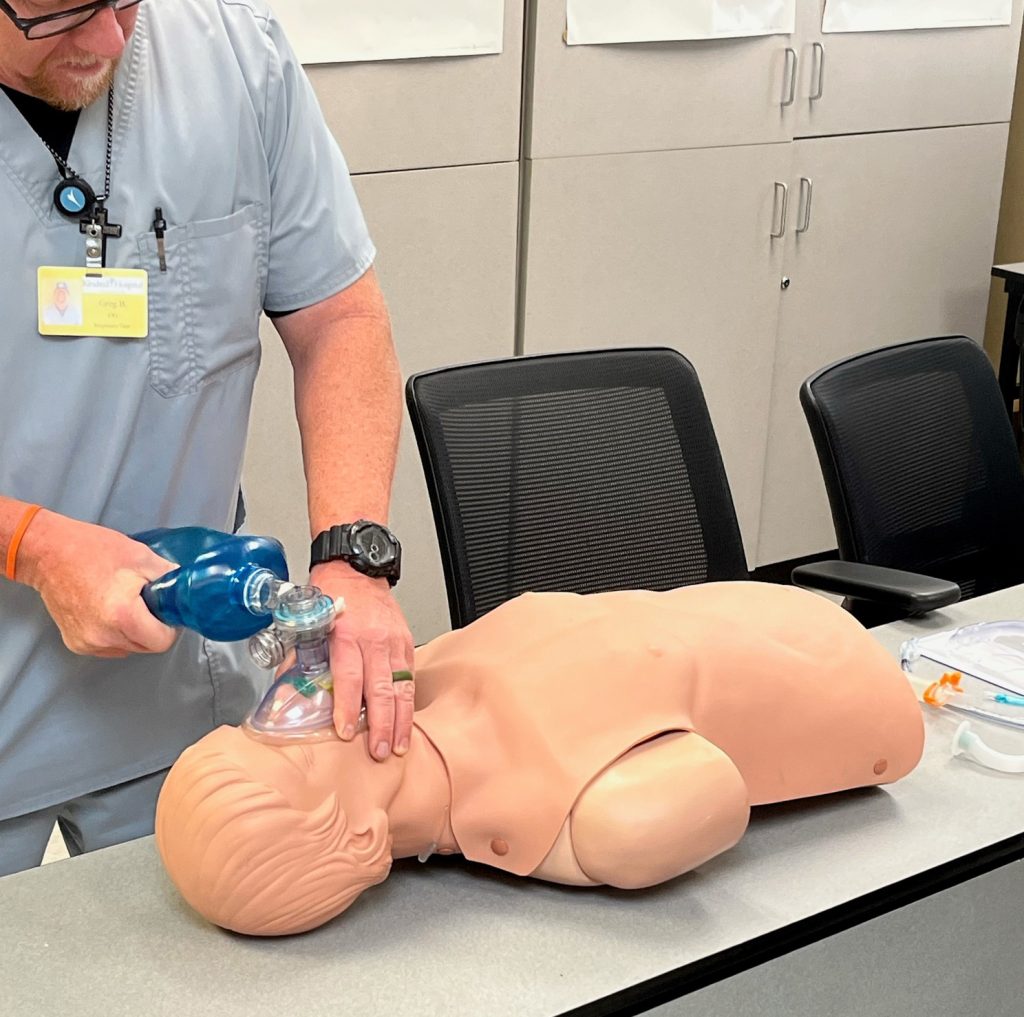The Lifesaving Power of AHA CPR Certification: Your Journey Begins Here
In emergencies, knowing how to perform CPR can be the difference between life and death. CPR certification is more than just a professional requirement for healthcare providers—it’s a vital skill that empowers people to save lives. The American Heart Association (AHA) offers one of the most recognized CPR certification programs globally, ensuring that individuals are well-prepared to handle cardiac emergencies. This article explores the journey of obtaining AHA CPR certification, from initial training to renewal, and underscores the importance of keeping your skills up to date.
Importance of CPR Certification
CPR certification is essential for anyone who wants to be prepared to assist in a life-threatening situation. Cardiac arrest can happen anywhere, at any time, and immediate intervention is crucial for survival. The AHA provides comprehensive CPR training programs tailored to different audiences, ensuring that people from all walks of life can learn how to respond effectively in emergencies. These programs range from Basic Life Support (BLS) for healthcare providers to more advanced certifications like Advanced Cardiovascular Life Support (ACLS) and Pediatric Advanced Life Support (PALS), as well as CPR and First Aid courses for non-healthcare professionals. Each program is designed to equip participants with the knowledge and skills they need to perform CPR and other life-saving techniques.
Brief Overview of American Heart Association (AHA) CPR Programs
For those who are new to CPR, the AHA offers several initial certification courses. These courses are essential for individuals who have never been certified before or whose certification has lapsed for an extended period. The Basic Life Support (BLS) course is designed for healthcare providers, including nurses, doctors, and emergency medical personnel. It focuses on the fundamental skills of high-quality CPR, the use of automated external defibrillators (AEDs), and team dynamics during resuscitation efforts. For professionals dealing with more complex medical emergencies, the ACLS course builds on BLS skills by introducing advanced cardiovascular interventions, pharmacology, and airway management. Similarly, the PALS course is aimed at those who care for infants and children, providing specialized training in pediatric resuscitation.
CPR and First Aid for Non-Healthcare Professionals
For non-healthcare professionals, the AHA offers CPR and First Aid courses that cover basic life-saving skills applicable in a wide range of settings, from homes and schools to workplaces and public spaces. These courses are shorter and less intensive than BLS, ACLS, and PALS, making them accessible to the general public while still providing essential training that can make a significant impact in an emergency. The content of these initial certification courses is comprehensive, often including a mix of video-based instruction, interactive scenarios, and hands-on practice. Participants learn not only how to perform CPR but also how to recognize the signs of cardiac arrest, use an AED, and provide First Aid in various situations. Most initial certification courses range from 3 to 6 hours, depending on the complexity of the material covered.
Hands-on training components
A critical component of AHA CPR courses is hands-on training. Practical experience is essential for building confidence and ensuring that participants can perform CPR effectively when it matters most. During the course, participants practice chest compressions, rescue breathing, and AED use on mannequins, receiving immediate feedback from instructors to refine their technique. This hands-on approach is vital because it bridges the gap between theory and practice, allowing participants to develop muscle memory and gain a deeper understanding of the life-saving techniques they are learning.
Certification Process and Validity Period
Once the training is complete, participants must pass both a written exam and a practical skills test to earn their certification. This process ensures that they have thoroughly understood the course material and can apply their knowledge in real-life situations. AHA certifications are typically valid for two years, after which they must be renewed to ensure that the skills and knowledge remain current.
AHA CPR Renewal
Renewing your AHA CPR certification is crucial for maintaining your ability to respond effectively in emergencies. Certification renewal is required every two years to keep your skills sharp and ensure that you are up to date with the latest guidelines and best practices. Renewal courses are generally shorter than initial certification courses, focusing on refreshing existing knowledge and introducing any new guidelines or techniques that have been developed since your last certification. One key difference between initial and renewal courses is the emphasis on updated guidelines. The AHA regularly reviews and updates its CPR guidelines based on the latest scientific research. As a result, renewal courses often highlight these changes, ensuring that participants are aware of the most effective methods for performing CPR and other life-saving procedures.
Importance of Staying Current with Certifications
For experienced professionals, the renewal process is streamlined to recognize their existing skills while ensuring they stay current. This often involves a brief review of the core concepts, followed by hands-on practice to reinforce those skills. The streamlined approach helps busy professionals maintain their certification without requiring them to undergo the full initial training process again. Despite the shorter duration, renewal courses are just as important as the initial certification, as they ensure that all participants are prepared to perform CPR according to the latest standards. Staying current with your certification is not only a matter of personal responsibility but also a professional obligation for many individuals, particularly those in the healthcare industry.
Choosing a Training Provider
Choosing the right training provider is crucial for both initial certification and renewal. CPR Tampa, an official AHA training site, is an excellent choice for those seeking high-quality CPR training. CPR Tampa offers a wide range of courses, including BLS, ACLS, PALS, CPR, and First Aid, catering to both healthcare providers and non-healthcare professionals. One of the primary benefits of training with CPR Tampa is the stress-free learning environment they provide. The experienced instructors at CPR Tampa understand that learning life-saving techniques can be daunting, especially for those new to CPR. They create a supportive atmosphere that encourages questions and fosters confidence in each participant’s ability to perform CPR.
Benefits of training with CPR Tampa
Another advantage of choosing CPR Tampa is its hands-on training approach, which emphasizes practical experience and real-world application. Participants are given ample opportunity to practice their skills on mannequins, with instructors providing personalized feedback to help them improve. This hands-on experience is invaluable, as it ensures that participants are not only knowledgeable but also capable of performing CPR effectively in an emergency. Additionally, CPR Tampa offers flexible scheduling options, making it easy for both individuals and groups to find a course that fits their busy schedules. This flexibility is especially beneficial for those who need to renew their certification but have limited time to attend a course.
Preparing for Your AHA CPR Course
When preparing for your AHA CPR course, it’s important to know what to expect. Whether you’re taking an initial certification course or renewing your certification, you can expect a combination of video-based instruction, interactive discussions, and hands-on practice. To make the most of your course, it’s helpful to come prepared with the necessary materials, such as a notebook for taking notes and comfortable clothing that allows you to move freely during hands-on practice. For those new to CPR, reviewing basic concepts before the class can be beneficial, while those renewing their certification might focus on any recent updates to the guidelines. Being well-prepared helps you get the most out of the course and ensures that you leave with a strong grasp of the skills being taught.
Maintaining Your CPR Skills
Maintaining your CPR skills between certifications is essential to ensure that you are always ready to act in an emergency. Regular practice is the key to keeping your skills sharp, and there are various resources available to help with this. Many AHA training sites, including CPR Tampa, offer refresher sessions or open practice times where certified individuals can practice their skills under the guidance of an instructor. Additionally, online resources such as videos and quizzes can help reinforce your knowledge and keep you up to date with any changes in CPR techniques. Renewal courses are also an opportunity to refresh your knowledge and practice your skills in a structured environment, ensuring that you remain confident and competent in your ability to perform CPR.
Conclusion
There are significant differences between initial CPR certification and renewal, both in terms of content and purpose. Initial certification is a comprehensive process designed to equip individuals with the knowledge and skills needed to perform CPR, while renewal focuses on updating and reinforcing those skills to keep them current. Timely recertification is crucial for anyone who wants to maintain their ability to respond effectively in an emergency. Whether you’re seeking initial certification or need to renew your existing certification, CPR Tampa offers the training, support, and flexibility you need to succeed. Their commitment to high-quality instruction and hands-on practice makes them an excellent choice for all your AHA CPR training needs.



